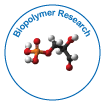当社グループは 3,000 以上の世界的なカンファレンスシリーズ 米国、ヨーロッパ、世界中で毎年イベントが開催されます。 1,000 のより科学的な学会からの支援を受けたアジア および 700 以上の オープン アクセスを発行ジャーナルには 50,000 人以上の著名人が掲載されており、科学者が編集委員として名高い
。オープンアクセスジャーナルはより多くの読者と引用を獲得
700 ジャーナル と 15,000,000 人の読者 各ジャーナルは 25,000 人以上の読者を獲得
抽象的な
The Effectiveness of VEGF Signalling Pathway Inhibitors on the Kidney and Their Immunoregulation Mechanism
Betty Andrews
Pathophysiologic processes that are closely related are angiogenesis and immunosuppression. VEGF signaling pathway inhibitors, which are frequently prescribed for proliferative retinal lesions and malignant tumors, can induce hypertension and renal damage in certain patients. These patients may present with proteinuria, nephrotic syndrome, renal failure, and thrombotic microangiopathy. VEGF-A and VEGF-C are both inhibited by VEGF signaling pathway inhibitors. Nonetheless, glomerular endothelial cells’ and podocytes’ physiological function depends on the VEGF-A and VEGF-C that podocytes produce. For kidney disease linked to inhibitors of the VEGF signaling pathway, there is currently no proven treatment, and some patients continue to experience progressive renal failure even after stopping their medication. According to recent research, VEGF-A and VEGF-C blocking can increase cytotoxicity of CD4 + and CD8 + T cells, strengthen dendritic cells’ ability to present antigens, and activate CD4 + and CD8+ T cells.

 English
English  Spanish
Spanish  Chinese
Chinese  Russian
Russian  German
German  French
French  Portuguese
Portuguese  Hindi
Hindi